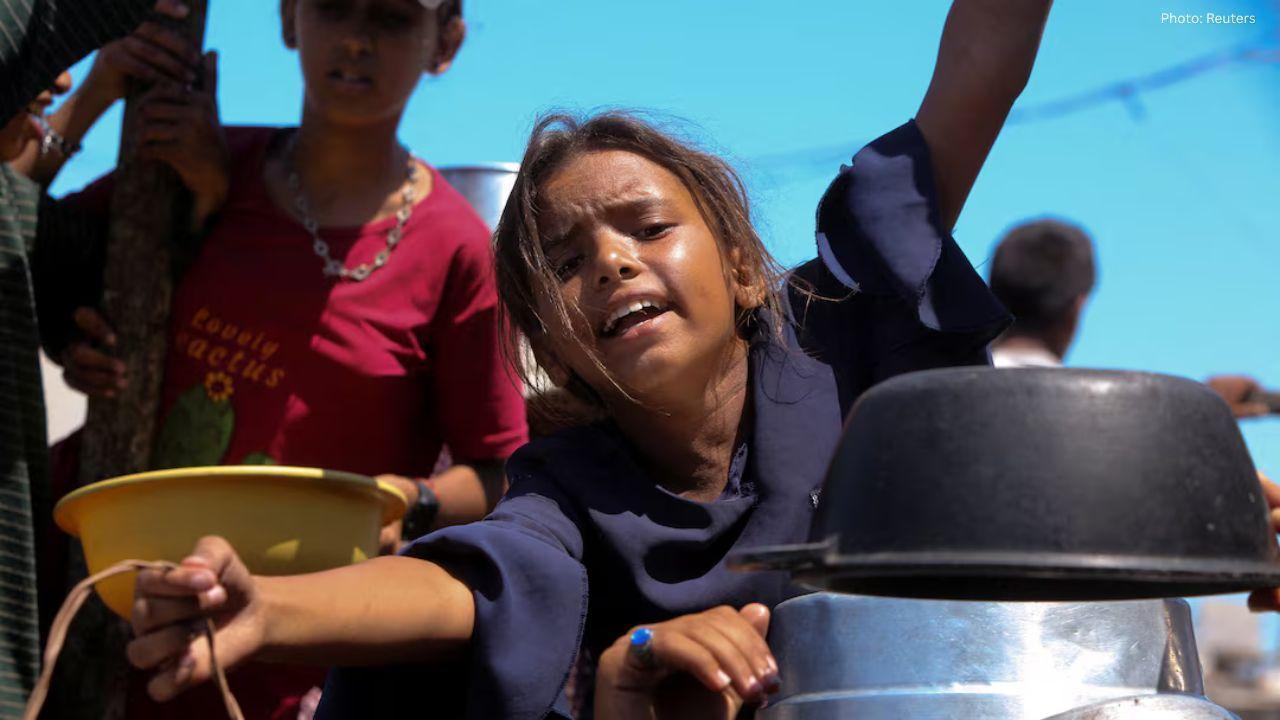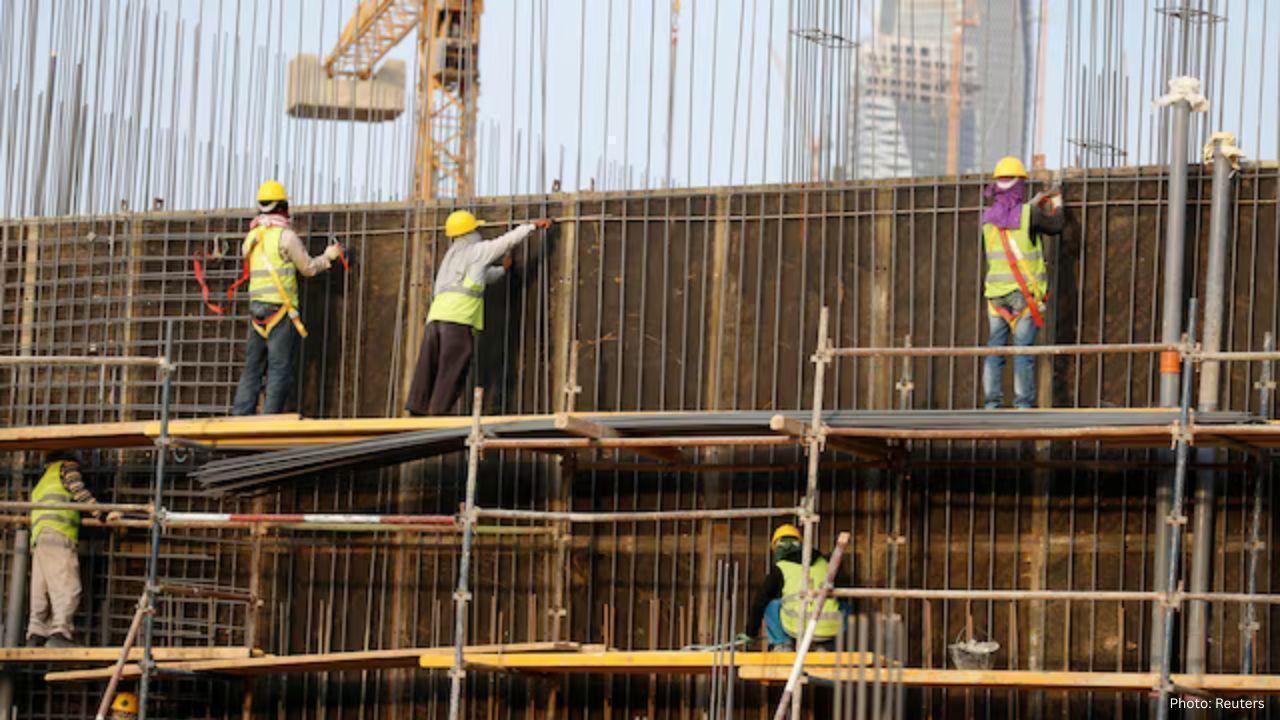You have not yet added any article to your bookmarks!

Join 10k+ people to get notified about new posts, news and tips.
Do not worry we don't spam!

Post by : Anis Farhan
Asia, home to more than half of the world’s population, stands at the forefront of the global climate crisis. With its vast coastlines, dense megacities, and agricultural dependency, the continent is witnessing firsthand the disruptive impact of rising sea levels, prolonged heatwaves, stronger storms, and unpredictable rainfall. From small island nations to industrial giants, no corner of Asia is immune to climate change. As the situation intensifies, the region faces a pressing need to adapt, transform, and build resilience against an uncertain environmental future.
Asia’s long coastlines make it particularly vulnerable to rising sea levels. Countries like Bangladesh, Indonesia, Vietnam, and the Philippines are already experiencing devastating consequences of coastal flooding. Millions of people risk displacement as seawater encroaches into fertile lands and urban centers. Jakarta, for instance, has been sinking faster than almost any other city in the world, prompting Indonesia to move its capital inland. Similarly, low-lying nations such as the Maldives face an existential threat, where entire communities could be lost if global temperatures and sea levels continue to rise.
The combination of urban overpopulation, poor infrastructure, and coastal geography magnifies the challenge. Asia’s coastal cities also serve as hubs for trade, finance, and manufacturing, making the potential economic loss from climate disasters even greater.
In recent decades, Asia has experienced an alarming increase in extreme weather events. Typhoons in the Pacific, monsoon floods in South Asia, and heatwaves in Southeast Asia have disrupted millions of lives. The Philippines regularly faces powerful typhoons that wipe out homes and infrastructure, while India and Pakistan suffer from deadly heatwaves that push temperatures to life-threatening levels.
Agriculture, which employs a large portion of Asia’s workforce, is particularly affected. Erratic monsoon rains in South Asia threaten crop yields, while prolonged droughts in Central and East Asia strain food security. These weather extremes not only devastate livelihoods but also amplify inequality, as vulnerable populations lack the resources to recover and adapt.
One of the most pressing climate challenges in Asia is water insecurity. Melting glaciers in the Himalayas, which feed major rivers such as the Ganges, Brahmaputra, and Mekong, threaten to disrupt water supplies for billions. At the same time, rising sea levels are salinizing freshwater reserves in coastal regions, making water unsafe for drinking and irrigation.
Urban areas are struggling with water shortages as rapid urbanization outpaces infrastructure development. Cities like Chennai in India and Beijing in China have already faced severe water crises. Without urgent adaptation measures, Asia risks widespread water stress, which could escalate into regional tensions over shared rivers and resources.
The human cost of climate change is most evident in health and livelihoods. Rising temperatures and humidity are fueling outbreaks of vector-borne diseases such as dengue and malaria, while heat stress poses a growing threat to outdoor workers. Farmers, fishermen, and laborers bear the brunt of climate-induced hardships, as crop failures, fishery declines, and dangerous working conditions threaten their income and well-being.
Air pollution, often worsened by rising temperatures, continues to plague cities across Asia. Smog in Delhi, Jakarta, and Bangkok not only affects quality of life but also increases vulnerability to respiratory illnesses. The intersection of environmental degradation and public health places immense strain on healthcare systems and governments.
Climate change is not just an environmental challenge—it is a significant economic threat. Disasters like floods, cyclones, and droughts cause billions of dollars in damage every year, destroying homes, factories, roads, and energy systems. Insurance costs are rising, and in many countries, disaster recovery expenses divert funds away from development projects.
Manufacturing hubs in Asia are especially vulnerable. Disruptions caused by floods or typhoons can affect global supply chains, since countries like China, Vietnam, and Thailand are key players in the production of electronics, textiles, and automobiles. The cost of inaction is mounting, and governments and businesses alike are realizing the urgent need to invest in resilience.
Despite the challenges, Asia is taking steps toward adaptation and resilience. Coastal protection projects, such as seawalls in Japan and mangrove restoration in the Philippines, are helping buffer against rising tides. India and Bangladesh are improving early warning systems for floods and cyclones, saving thousands of lives each year.
Renewable energy development is another critical component. Countries such as China, India, and Vietnam are investing heavily in solar and wind energy to reduce reliance on fossil fuels and curb greenhouse gas emissions. At the same time, climate-smart agriculture practices, including drought-resistant crops and efficient irrigation, are being introduced to support farmers in adapting to changing weather conditions.
Cities are also rethinking their infrastructure. Singapore has implemented advanced water recycling systems and flood-control measures, while South Korea is promoting green urban spaces to reduce heat stress. These localized solutions highlight the diverse strategies being adopted to combat climate risks.
Climate change does not recognize borders, making regional cooperation essential. Asian countries share rivers, oceans, and ecosystems, and collective action is critical to ensure sustainable outcomes. Initiatives such as cross-border disaster management, shared water agreements, and regional climate funds are gaining traction, though more needs to be done.
The Association of Southeast Asian Nations (ASEAN) and the South Asian Association for Regional Cooperation (SAARC) are increasingly incorporating climate issues into their agendas. However, geopolitical tensions often complicate collaboration, underscoring the need for stronger trust and shared commitments in the region.
While national policies are crucial, local communities often lead the way in adapting to climate change. Grassroots initiatives such as community-based mangrove reforestation, rooftop farming in urban centers, and local disaster preparedness programs show how people are finding innovative ways to protect themselves and their livelihoods.
Empowering communities with resources, knowledge, and technology can greatly enhance resilience. When adaptation efforts are inclusive and locally driven, they tend to be more sustainable and effective. Women, in particular, play a vital role in community resilience, as they often manage household resources and lead environmental initiatives.
Asia stands at a crossroads in its fight against climate change. The decisions taken today will determine whether the region can secure a safer and more sustainable future. Strengthening adaptation measures, reducing carbon emissions, and fostering collaboration will be key. Governments, businesses, and individuals all have a role to play in building resilience against climate shocks.
While challenges remain daunting, Asia’s size, diversity, and innovation capacity offer reasons for hope. With coordinated action and commitment, the continent can transform its vulnerabilities into opportunities, leading the world in climate resilience and sustainable development.
This article is intended for informational purposes only and reflects general insights on climate challenges in Asia. It does not provide policy advice or official recommendations.










Two Telangana Women Die in California Road Accident, Families Seek Help
Two Telangana women pursuing Master's in the US died in a tragic California crash. Families urge gov

Ranveer Singh’s Dhurandhar Roars Past ₹1100 Cr Worldwide
Ranveer Singh’s Dhurandhar stays unstoppable in week four, crossing ₹1100 crore globally and overtak

Asian Stocks Surge as Dollar Dips, Silver Hits $80 Amid Rate Cut Hopes
Asian markets rally to six-week highs while silver breaks $80, driven by Federal Reserve rate cut ex

Balendra Shah Joins Rastriya Swatantra Party Ahead of Nepal Polls
Kathmandu Mayor Balendra Shah allies with Rastriya Swatantra Party, led by Rabi Lamichhane, to chall

Australia launches review of law enforcement after Bondi shooting
Australia begins an independent review of law enforcement actions and laws after the Bondi mass shoo

Akshaye Khanna exits Drishyam 3; Jaideep Ahlawat steps in fast
Producer confirms Jaideep Ahlawat replaces Akshaye Khanna in Drishyam 3 after actor’s sudden exit ov